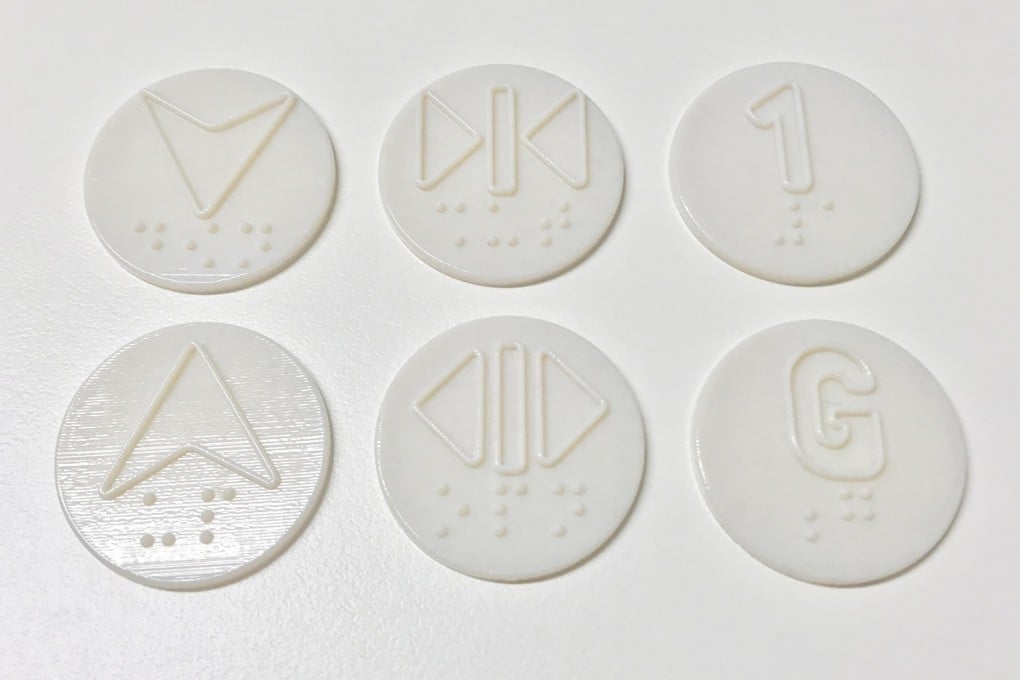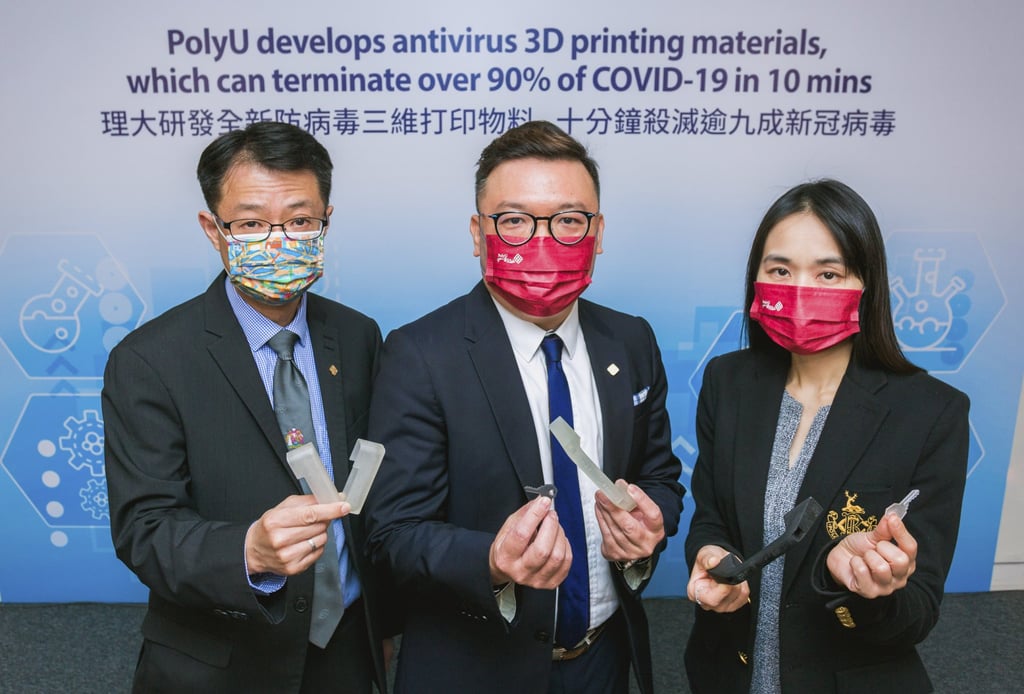Coronavirus killer material developed in 3D printing project by Hong Kong’s Polytechnic University paves way for new lift buttons, door handles
- Research team engineers 3D printing material that kills all viruses and bacteria within 20 minutes
- Antiviral agents proved to still kill 85 per cent of viruses and bacteria after three years, capable of handling new variants

Researchers from a Hong Kong university have developed the world’s first 3D printing material with a surface that can kill the coronavirus within 20 minutes and be used to produce low-cost, durable lift buttons and door handles to reduce infection risks.
The seven-member team from the Hong Kong Polytechnic University started the research project in July 2020. They added antiviral agents to resin, the main component of the 3D printing material, to kill viruses and bacteria by piercing their cell membrane and destroying their structure.
Research leader Chris Lo Kwan-yu, an associate professor of the university’s institute of textiles and clothing, said the laboratory tests had shown that the material could kill more than 90 per cent of the coronavirus as well as other common viruses and bacteria on the surface within 10 minutes, and wiped out more than 99 per cent within 20 minutes.
The team also accelerated the ageing of the material in their laboratory tests to study its effectiveness and durability, and found that it could still kill more than 90 per cent of the coronavirus within 10 minutes after a year, and nearly 85 per cent of it after three years.
Over the past year, the researchers collaborated with the Home Affairs Department, the Hong Kong Wetland Park and an environmental organisation to produce recycling bin handles, toilet doorknob covers, lift buttons and Braille boards in public areas.

After one year’s use, they detected no traces of coronavirus or other common viruses and bacteria on them.